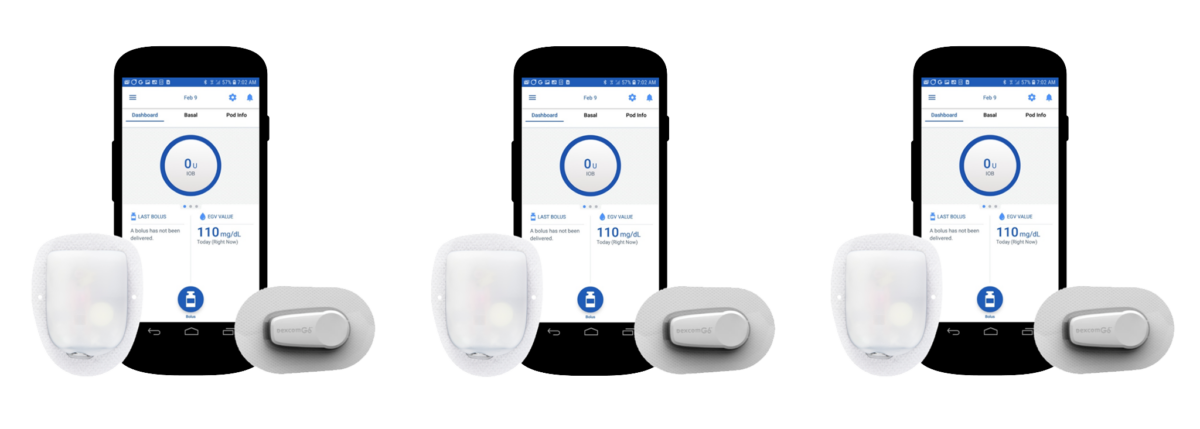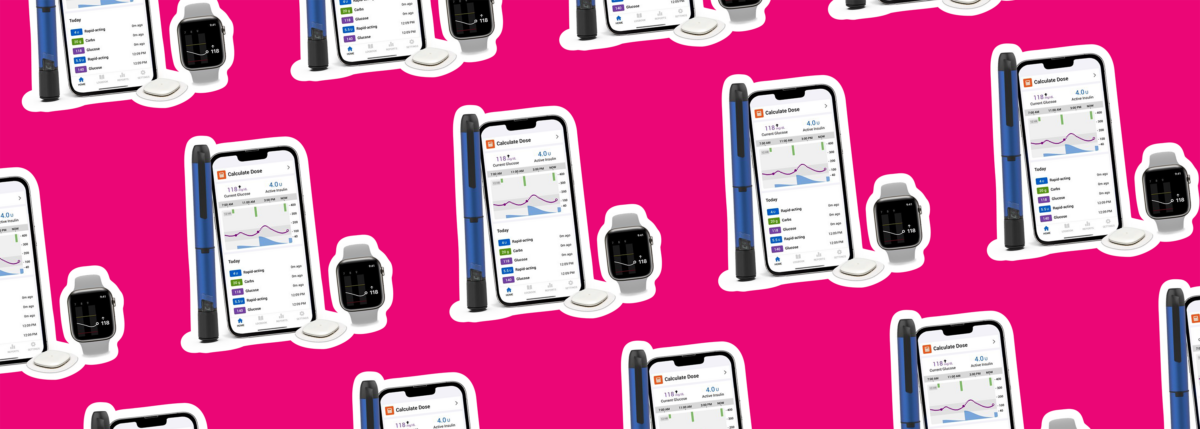10 Reasons For Hyperglycemia During Training
Written by: Phil Graham (BSc, CISSN)
5 minute read
January 27, 2021
High blood sugar is one of the biggest obstacles to improving health, fitness, and performance. I want to explore the top 10 reasons why blood glucose levels tend to rise (hyperglycemia) in people living with diabetes.
Editor’s Note: Phil Graham (BSc, CISSN) is a certified sports nutritionist and competitive body builder. Learn more of his training tips on his site Diabetic Muscle and Fitness.
High blood sugar is one of the biggest hurdles to improving health, getting in shape and performing well. I want to discuss the 10 of the biggest reasons why blood glucose levels tend to go high (hyperglycemia) in people living with diabetes. Please bear in mind that type 1 and 2 diabetes are different and need to be managed differently. Key factors include: the type of medication, physical activity levels, training volume, muscle mass, other illnesses and susceptibility to life stress.
Hypoinsulinemia
You simply don’t have enough insulin in your bloodstream to facilitate the transport of glucose into target tissues. As a result, your blood glucose levels remain high, increasing the risk of diabetic ketoacidosis (DKA), which exacerbates hyperglycemia.
This may be due to missing a dose, eating too many carbs or uncontrolled glucose production from your liver during times of stress.
- Fix – Administer appropriate amounts of insulin or other diabetic mediation specific to your abnormal blood glucose level. Only do this under the close guidance and monitoring of a professional healthcare team.
Prolonged pump disconnect
Similar to above. Lack of insulin in the blood stream means only one thing for the individual deficient in insulin—high blood glucose.
- Fix – Ensure you pump is well connected at all time, especially if you’ve spent the day doing manual labor. Be mindful that wearing an exercise belt, for powerlifting and bodybuilding purposes can lead to pump discomfort and disconnect during training, consequently leading to high blood glucose.
Malfunctioning needles
If your needle fails to work, you won’t be able to administer insulin accurately, or even at all.
- Fix – Test needle function by squirting out a few units of insulin. If it’s jammed, replace it immediately. Always carry spares. Trust me, there is nothing worse than a malfunctioning needle.
Overuse of stimulants
Caffeine, ephedra, yohimbine and other popular bodybuilding supplements are stimulants. They stimulate a sympathetic (fight or flight) response within the body, which increases the production of glucose raising hormones.
In those who are deficient or fail to produce insulin, overuse of stimulants can increase blood glucose levels, and, if left unattended can result in hyperglycemia. This isn’t a good place to be prior to training.
- Fix – Measure your blood glucose response to popular stimulants. Bear in mind circulating insulin and physical activity may influence your response. I personally test my response in a fasted state when other variables aren’t as much of an influence.
Anaerobic exercise
High intensity exercise is a stressful form of training which has the potential to increase blood glucose levels because insulin levels fail to rise and compensate for the increased production of glucose raising hormones in someone with diabetes.
It is very well established that people with diabetes involved in powerlifting and bodybuilding-style training increase the production of such glucose raising hormones, which increases the liver’s production of glucose and limits glucose disposal.
In individuals without diabetes, increased production of glucose raising hormones and hyperglycemia is compensated for by an increase in insulin secretion, usually at the end of exercise.
- Fix – Monitor blood glucose closely and correct accordingly with appropriate administration of insulin as and when needed if hyperglycemia were to occur. Failing to respond to high blood glucose increases muscle loss, reduces performance and increases the possibility of diabetic related complications.
Very vigorous aerobic exercise
This includes very tough aerobic exercise like mountain climbing, boxing, martial arts or mountain biking which tend to include intermittent periods of anaerobic work.
Similar to above—elevations in glucose raising hormones increase blood glucose. The diabetics ability to achieve glycemic control is hindered without administering the appropriate dose of medication.
- Fix – Monitor your blood glucose response to certain forms of exercise. Identify when and where blood glucose fluctuates. Observe the patterns and react accordingly as you become increasingly familiar with your body’s response.
Too many carbs
Carbohydrate from food and drink has the greatest effect on blood glucose levels over any other ingested macronutrient. All carbohydrates are broken down into glucose which enters the bloodstream as fuel for instant use or storage for future use. Glucose is an essential fuel for the body, especially the brain.
One of the hallmarks of diabetes is a difficulty processing carbohydrate. Lower carbohydrate intakes are often suggested as a means of improving control. While this dietary approach may be a legitimate way of improving blood glucose control in sedentary individuals, individuals who train regularly may need more carbohydrate to fuel their training volume.
A higher intake of carbohydrate increases the potential for hyperglycemia, especially if insulin secretion is lost.
- Fix – Dose accordingly. Specialist diabetes education courses in the UK like DAFNE (Dose Adjustment For Normal Eating) are a great way of managing blood glucose levels in people with type 1 diabetes. The courses empower people with the necessary skills required to calculate the appropriate dose of insulin needed to accommodate the correct amount of carbohydrate found within meals.
Stress
Physical and emotional stress has the ability to increase blood glucose levels in people with all types of diabetes.
If you want to find out if mental stress is negatively affecting your blood glucose control, score your stress level on a scale of 1-10 (10 being worst) and correlate it with your blood glucose level.
If you’re repetitively correlating high stress scores with blood glucose levels beyond where they should be, given your insulin is dosed accurately to food eaten, you will gain a fair idea of how sensitive you are to stress.
This is a common concern for bodybuilders with diabetes, powerlifters and athletes who compete. The stress of competing can elevate blood glucose levels to the point performance and appearance (in bodybuilding) is impaired. I recall how sensitive I was to mental stress in my competitive bodybuilding days as a person with diabetes. Hyperglycemia was a constant battle on show day.
- Fix – Your perception to stress is important. Learning to respond instead of react to life’s stress is a good skill to possess, since most of the stress you encounter is “self-imposed party tricks”. On the contrary if you are under real threat, whether it be a lion or ex-wife, relocate. Too much stress, not enough recovery, and you put yourself in a prime position for injury, illness or worse, burnout! I’ve found meditation and personal development are great ways to improve my tolerance to life stress.
Infection/illness
The stress of illness on the body in conjunction with certain medication can cause blood glucose levels to rise, making blood glucose levels difficult to manage in people with type 1 diabetes. High blood sugar levels weaken the immune system, while diabetes-related health complications, such as nerve damage and reduced blood flow to the extremities, increase the body’s vulnerability to infection. The result: the illness and infections worsen.
- Fix – Test your blood glucose levels more often and administer the necessary amount of corrective medication to normalize blood glucose levels. Do your best to stay hydrated and if suffering loss of appetite, consider supplementing with essential nutrients notably protein, essential fatty acids and a multi-vitamin.
Denatured insulin
If you leave your insulin lying out in the sun or accidentally freeze it, expect it not to work as well. Insulin is a peptide hormone, comprised of different amino acids. Extreme temperature fluctuations can denature the peptide sequence, compromising the structure and function of the hormone. Insulin that doesn’t function properly is useless and will encourage hyperglycemia.
- Fix – Keep your insulin in a cool, dry and dark place—simple.

Author
Phil Graham (BSc, CISSN)
Renowned sports nutritionist and author and competitive bodybuilder Phil Graham (a certified sports nutritionist) has established himself as one of UK’s leading fitness educators, coaches and personal trainers. Phil coaches 1000s of personal trainers every year through his seminars and workshops. He actively writes for many of the major fitness publications, hosts the popular Podcast Elite Muscle Radio and has recently published the first muscle building and fat loss fitness book for people living with diabetes (The Diabetic Muscle and Fitness Guide). Learn more about Phil's work: www.diabeticmuscleandfitness.com.
Related Resources

Already compatible with Dexcom’s G6 and G7 continuous glucose monitors (CGMs), the Omnipod 5 Automated...
Read more

The younger a person is diagnosed with type 2 diabetes, especially those with obesity, the...
Read more

The Oura Ring, which tracks things like sleep, heart rate, and activity, is joining forces...
Read more


